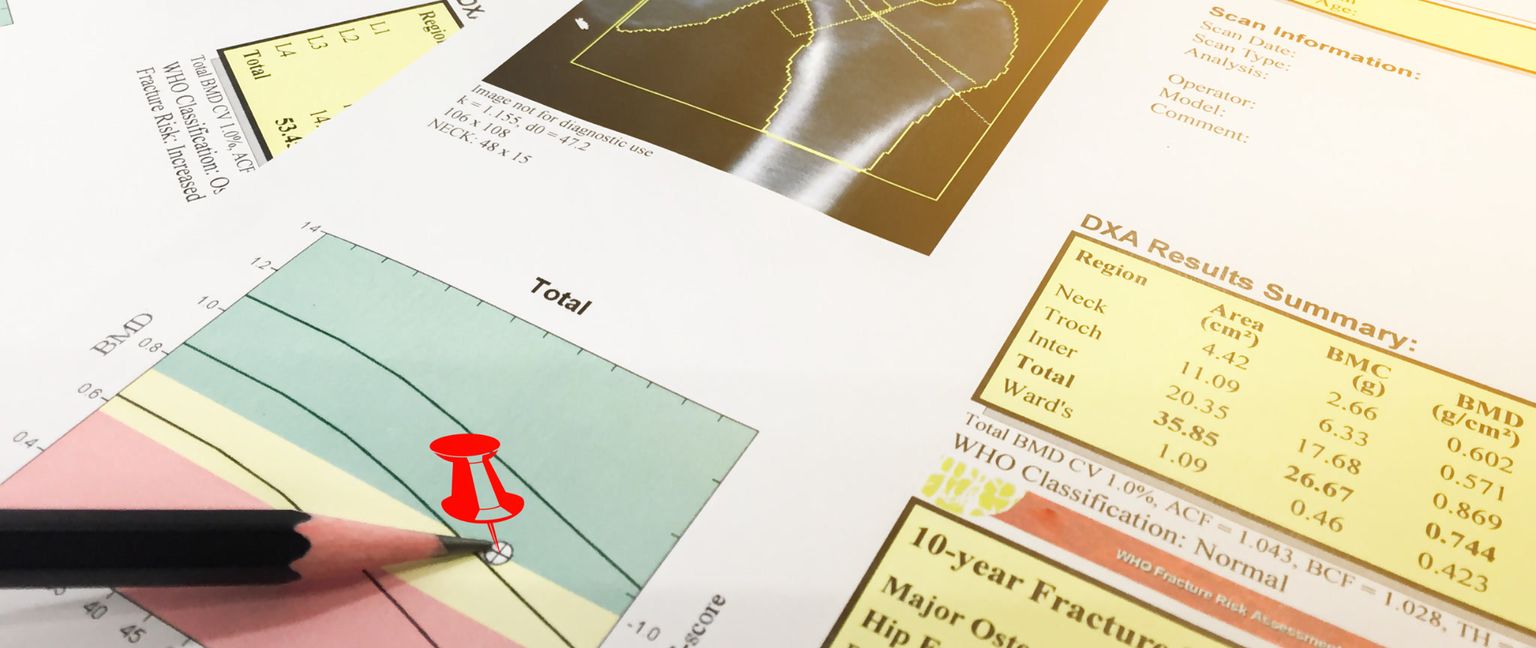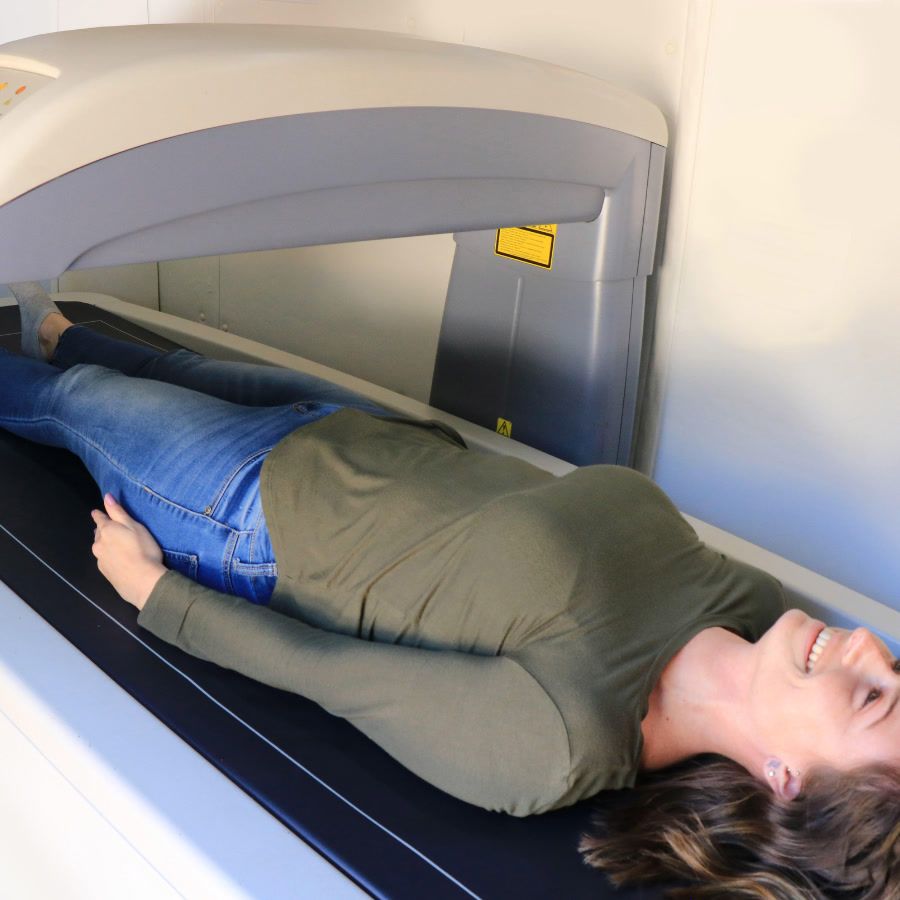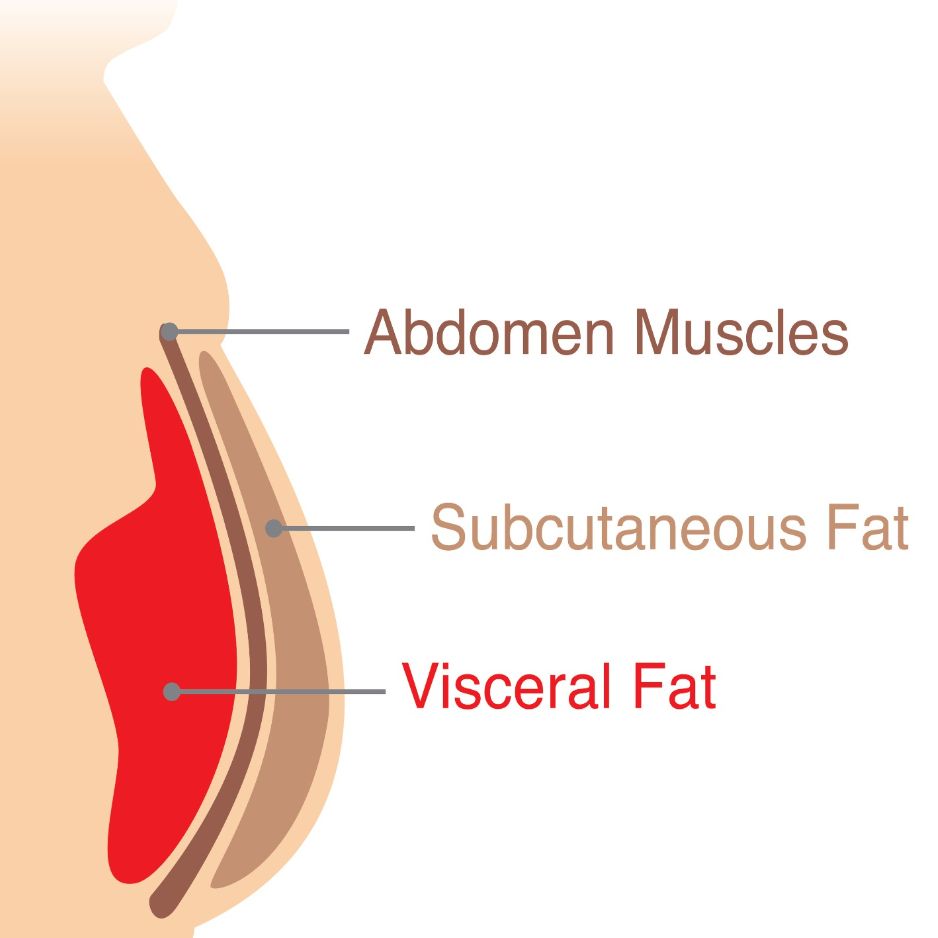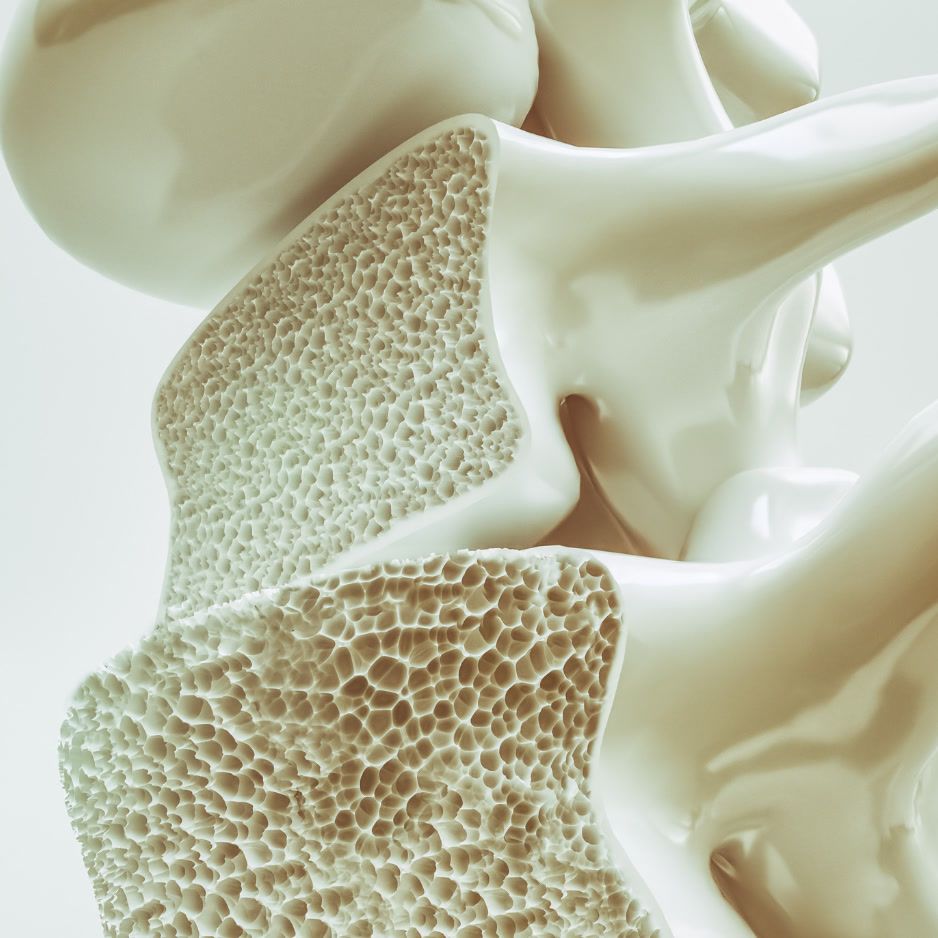Find a DEXA Scan Near You

If you're interested in taking charge of your health, scheduling a DEXA scan is a great way to start. A DEXA scan is a quick and noninvasive procedure that can provide a detailed analysis of your body composition, bone density, and overall health. But, where do you go to get a DEXA scan? In this article, we will guide you through everything you need to know to find a DEXA scan facility near you.
Get weekly updates.
Understanding the Importance of DEXA Scans
Before we dive into finding a DEXA scan facility, let's first understand the benefits of a DEXA scan. A DEXA scan is often used to assess your risk of developing osteoporosis, a condition that causes bone loss and frailty, and can lead to serious bone fractures. DEXA scans can also help evaluate your body composition, including muscle mass, body fat, and visceral fat. Knowing your body composition is vital for maintaining a healthy weight, building strength, and reducing your risk of chronic diseases such as heart disease, diabetes, and certain types of cancer.
Osteoporosis is a disease that affects millions of people worldwide. It is often referred to as the "silent disease" because it progresses slowly and without symptoms until a bone fracture occurs. Women are particularly at risk for developing osteoporosis, especially after menopause when their estrogen levels decrease. However, men can also develop osteoporosis, particularly those who have low testosterone levels or take certain medications that can weaken bones.
Find a Dexa Scan in:
Cedar Park, TX
San Francisco, CA
San Jose, CA
Palo Alto, CA
Dallas, TX
Fort Worth, TX
McKinney, TX
Frisco, TX
Seattle, WA
Bellevue, WA
Los Angeles, CA
Long Beach, CA
Beverly Hills, CA
What is a DEXA Scan?
A DEXA scan is a medical imaging procedure that uses X-rays to measure bone density, body fat, and muscle mass. It is a quick and painless procedure that involves lying down on a table while a scanner passes over your body. The scanner emits a small amount of radiation, which is absorbed differently by bone, fat, and muscle. The scanner then measures the amount of radiation absorbed by each tissue type, which provides a detailed picture of your body composition.
The DEXA scan is considered the gold standard for measuring bone density and is the most accurate way to diagnose osteoporosis. It is also an effective tool for monitoring changes in body composition over time, making it a valuable tool for athletes, bodybuilders, and fitness enthusiasts.
Why You Might Need a DEXA Scan
Your healthcare provider may recommend a DEXA scan if you are at risk of developing osteoporosis or have already been diagnosed with the condition. Additionally, DEXA scans are often used in physical fitness and nutrition programs to monitor progress and inform treatment plans. If you are trying to lose weight or build muscle, a DEXA scan can help you track your progress and make adjustments to your diet and exercise routine.
DEXA scans are also used to monitor the effects of certain medications on bone density. For example, corticosteroids, which are commonly prescribed for conditions such as asthma and arthritis, can weaken bones and increase the risk of osteoporosis. If you are taking a medication that can affect bone density, your healthcare provider may recommend a DEXA scan to monitor your bone health.
The Benefits of Regular DEXA Scans
Regular DEXA scans can help monitor changes in your body composition and bone density over time. This information can help you identify risk factors for chronic diseases and take steps to improve your overall health. It can also be a motivating factor in achieving fitness or weight loss goals.
In addition to monitoring your bone density and body composition, regular DEXA scans can also help detect other health issues. For example, a DEXA scan can detect the presence of abdominal aortic calcification, which is a marker for heart disease. By detecting this condition early, you can take steps to reduce your risk of heart disease and other chronic conditions.
In conclusion, DEXA scans are a valuable tool for assessing bone density and body composition. Whether you are at risk for osteoporosis, trying to lose weight, or monitoring the effects of medication on bone health, a DEXA scan can provide important information about your overall health. If you are considering a DEXA scan, talk to your healthcare provider to determine if it is right for you.
Preparing for Your DEXA Scan
Now that we understand the benefits of a DEXA scan, let's prepare for your appointment. A DEXA scan, also known as dual-energy X-ray absorptiometry, is a non-invasive test that measures bone density. It is commonly used to diagnose osteoporosis, a condition that weakens bones and increases the risk of fractures.
During the scan, the machine will pass low-dose X-rays through your body, and the amount of radiation that passes through your bones will be measured. The results will help your doctor determine your bone density and assess your risk of fractures.
What to Expect During the Procedure
The DEXA scan procedure is straightforward. You will lie down on a table while the scanner passes over your body. The scanner is a large, flat machine that looks like a table with an arm that extends over your body. You will need to lie still during the scan, and the technician may ask you to hold your breath for a few seconds to reduce movement.
The procedure takes around 10-20 minutes and is painless. You will not feel anything during the scan, and there are no side effects. After the scan, you can resume your normal activities immediately.
How to Dress for Your Appointment
It's best to wear loose-fitting clothing for your DEXA scan appointment, avoiding clothing with metal zippers or buttons that can interfere with the scan. Depending on the facility, you may be provided with a hospital gown to wear during the procedure.
You may also be asked to remove any jewelry or metal objects from your body, such as watches, necklaces, or piercings, as these can interfere with the scan.
Pre-Scan Dietary and Medication Guidelines
Some medications, supplements, or certain foods can affect the results of a DEXA scan. Before your appointment, be sure to follow any dietary or medication guidelines provided by your healthcare provider or the scanning facility.
For example, calcium supplements can affect the results of the scan, so you may be asked to stop taking them for a certain period before the procedure. Similarly, some medications, such as steroids or thyroid hormone, can also affect the results, so you may need to adjust your medication schedule.
It's important to inform your doctor or the scanning facility about any medications or supplements you are taking, as well as any medical conditions you have, such as pregnancy or recent surgery, that may affect the scan.
Locating DEXA Scan Facilities Near You
Now that you're ready to schedule your DEXA scan appointment, let's explore your options for finding a facility. A DEXA scan, also known as dual-energy x-ray absorptiometry, is a non-invasive imaging test that measures bone density and body composition. This test is commonly used to diagnose osteoporosis and assess the risk of fractures.
If you're concerned about your bone health or body composition, getting a DEXA scan can provide valuable information about your overall health. Here are some ways to find a facility that offers DEXA scanning services:
Using Online Directories and Search Engines
The internet is a valuable resource for finding DEXA scan facilities in your area. Online directories and search engines can provide a list of facilities, along with their location, contact information, and customer reviews. Some popular online directories for medical services include Healthgrades, Zocdoc, and WebMD. You can also use search engines like Google or Bing to find DEXA scan facilities near you. Simply type in "DEXA scan near me" or "DEXA scan facilities in [your city or state]" and browse the results.
Contacting Local Hospitals and Medical Centers
Hospitals and medical centers often have imaging departments that offer DEXA scanning services. Contact your local hospital or medical center to inquire about their services, locations, and pricing. Some hospitals may require a referral from your healthcare provider, so be sure to check their policies before scheduling an appointment. Additionally, some hospitals may offer mobile DEXA scanning services, where the equipment is brought to your location.
Asking for Recommendations from Healthcare Professionals
Your healthcare provider or nutritionist may be able to provide recommendations for DEXA scan facilities in your area. These professionals often have experience working with and referring patients to imaging facilities and can give insight into the quality of care provided. They may also be able to help you interpret the results of your DEXA scan and provide recommendations for improving your bone health or body composition.
Overall, finding a DEXA scan facility near you can be a simple process with the help of online resources, local hospitals, and healthcare professionals. Don't hesitate to schedule your appointment and take the first step towards better bone health and overall wellness.
Comparing DEXA Scan Providers
Once you've identified a list of potential DEXA scan facilities, it's important to compare providers to find the best fit for your needs. DEXA scans are an important tool for measuring bone density and identifying osteoporosis, so choosing the right provider is essential for maintaining your bone health.
Evaluating Facility Reputation and Reviews
Search online for facility reviews and ratings to assess the reputation of each provider. Consider reading reviews from past patients to gauge the facility's level of care, customer service, and overall satisfaction. Look for reviews that specifically mention DEXA scans to get an idea of how well the facility performs this particular service. Additionally, check if the facility has any certifications or awards that speak to their quality of care.
If you have friends or family members who have had DEXA scans in the past, ask them for recommendations. Personal referrals can be a great way to find a provider that you can trust.
Comparing Costs and Insurance Coverage
DEXA scans can vary in cost depending on the facility and location. Some facilities may offer discounts or payment plans for patients who are paying out of pocket. Check with your insurance provider to see if DEXA scans are covered, and if so, which facilities are in-network. Keep in mind that even if a facility is out-of-network, it may still be worth considering if they offer a significantly lower cost than in-network providers.
When comparing costs, make sure to ask about any additional fees or charges that may not be included in the initial price quote. For example, some facilities may charge an additional fee for interpreting the results of the DEXA scan.
BodySpec offers affordable DEXA scans, starting at $39/scan. We also offer a free AI Voice Consultation on the dashboard to help you understand your scan.
Assessing Availability of Appointments
Facilities may have varying availability for appointments, so it's important to find a facility that can accommodate your schedule. Consider the location and hours of operation of each facility when making your decision. If you have a busy schedule, look for providers that offer evening or weekend appointments. Some facilities may also offer online scheduling, which can be a convenient option for patients.
If you have any specific needs or concerns, such as mobility issues or language barriers, make sure to ask the facility if they can accommodate you. Some facilities may offer special accommodations for patients with disabilities or who speak languages other than English.
By taking the time to compare DEXA scan providers, you can find a facility that meets your needs and provides high-quality care. Whether you're a first-time patient or have had DEXA scans in the past, it's important to prioritize your bone health and choose a provider that you can trust.
Conclusion
There are many benefits to getting a DEXA scan, including a better understanding of your body composition, bone density, and overall health. Finding a DEXA scan facility near you may seem daunting, but with the tips provided in this article, you can be on your way to scheduling a DEXA scan appointment in no time!


